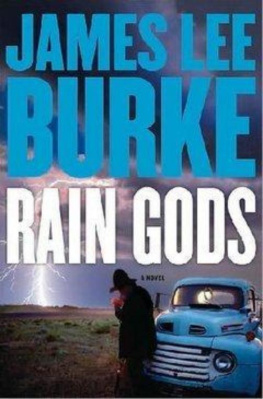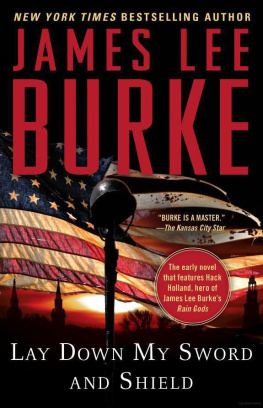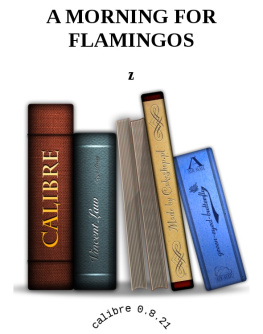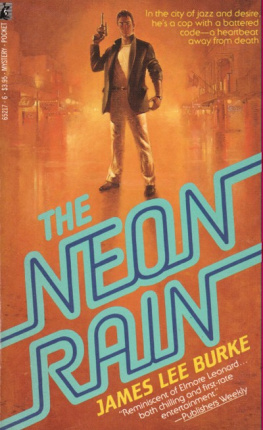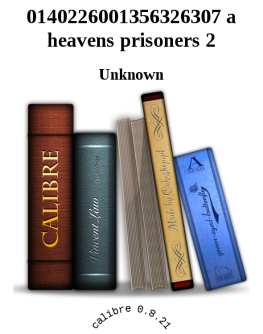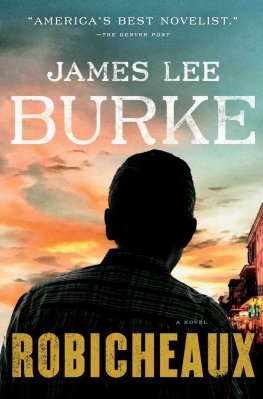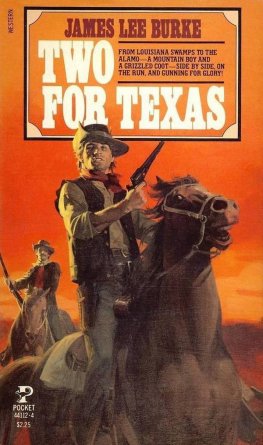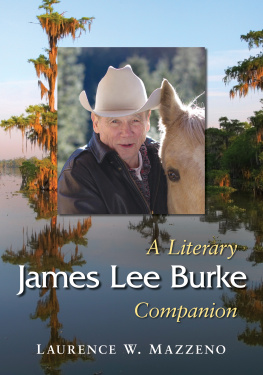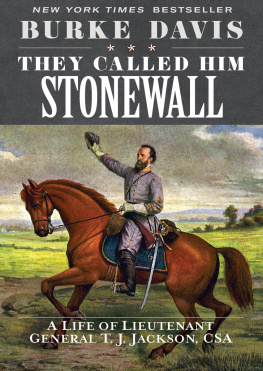White Doves at Morning
by James Lee Burke
I would like to thankPamela Arceneaux at the Williams Research Center of New Orleans and C.J. LaBauve of New Iberia for their help with historical detail in thewriting of this book.
for Dracos and Carrie Burke
Chapter One
1837
THE black woman's name wasSarie, and when she crashed out the door of the cabin at the end of theslave quarters into the fading winter light, her lower belly burstingwith the child that had already broken her water, the aftermath of theice storm and the sheer desolate sweep of leaf-bare timber and frozencotton acreage and frost-limned cane stalks seemed to combine andstrike her face like a braided whip.
She trudged into the graynessof the woods, the male shoes on her feet pocking the snow, her breathstreaming out of the blanket she wore on her head like a monk's cowl.Ten minutes later, deep inside the gum and persimmon and oak trees, herclothes strung with air vines that were silver with frost, the frozenleaves cracking under her feet, she heard the barking of the dogs andthe yelps of their handlers who had just released them.
She splashed into a slough,one that bled out of the woods into the dark swirl of the river whereit made a bend through the plantation. The ice sawed at her ankles; thecold was like a hammer on her shins. But nonetheless she worked her wayupstream, between cypress roots that made her think of a man's knucklesprotruding from the shallows. Across the river the sun was a vaporoussmudge above the bluffs, and she realized night would soon come uponher and that a level of coldness she had never thought possible wouldinvade her bones and womb and teats and perhaps turn them to stone.
She clutched the bottom of herstomach with both hands, as though holding a watermelon under herdress, and slogged up the embankment and collapsed under a lean-towhere, in the summer months, an overseer napped in the afternoon whilehis charges bladed down the cypress trees for the soft wood MarseJamison used to make cabinets in the big house on a bluff overlookingthe river.
Even if she had known theriver was called the Mississippi, the name would have held nosignificance for her. But the water boundary called the Ohio wasanother matter. It was somewhere to the north, somehow associated inher mind with the Jordan, and a black person only needed to wade acrossit to be as free as the children of Israel.
Except no black person on theplantation could tell her exactly how far to the north this river was,and she had learned long ago never to ask a white person where theriver called Ohio was located.
The light in the west died andthrough the breaks in the lean-to she saw the moon rising and theground fog disappearing in the cold, exposing the hardness of theearth, the glazed and speckled symmetry of the tree trunks. Then a painlike an ax blade seemed to split her in half and she put a stick in hermouth to keep from crying out. As the time between the contractionsshrank and she felt blood issue from her womb between her fingers, shewas convinced the juju woman had been right, that this baby, her first,was a man-child, a warrior and a king.
She stared upward at theconstellations bursting in the sky, and when she shut her eyes she sawher child inside the redness behind her eyelids, a powerful littlebrown boy with liquid eyes and a mouth that would seek both milk andpower from his mother's breast.
She caught the baby in herpalms and sawed the cord in half with a stone and tied it in a knot,then pressed the closed eyes and hungry mouth to her teat, just beforepassing out.
THE dawn broke hard and cold,a yellow light that burst inside the woods and exposed her hiding placeand brought no warmth or releasefrom the misery in her bones. There was a dirty stench in the air, likesmoke from a drowned campfire. She heard the dogs again, and when sherose to her feet the pain inside her told her she would never outrunthem.
Learn from critters, hermother had always said. They know God's way. Don't never ax Master orhis family or the mens he hire to tell you the troot. Whatever theyteach us is wrong, girl. Never forget that lesson, her mother had said.
The doe always leads thehunter away from the fawn, Sarie thought. That's what God taught thedoe, her mother had said.
She wrapped the baby in theblanket that had been her only protection from the cold, then rose toher feet and covered the opening to the lean-to with a broken pinebough and walked slowly through the woods to the slough. She steppedinto the water, felt it rush inside her shoes and over her ankles, thenworked her way downstream toward the river. In the distance she heardaxes knocking into wood and smelled smoke from a stump fire, and thefact that the work of the plantation went on rhythmically, not missinga beat, in spite of her child's birth and possible death reminded heronce again of her own insignificance and the words Master had used toher yesterday afternoon.
"You should have taken care ofyourself, Sarie," he had said, his pantaloons tucked inside his ridingboots, his youthful face undisturbed and serene and without blemishexcept for the tiny lump of tobacco in his jaw. "I'll see to it thebaby doesn't lack for raiment or provender, but I'll have to send youto the auction house. You're not an ordinary nigger, Sarie. You won'tbe anything but trouble. I'm sorry it worked out this way."
When she came out of the waterand labored toward the edge of the woods, she glanced behind her and inthe thin patina of snow frozen on the ground she saw her own bloodspore and knew it was almost her time, the last day in a lifetime ofdays that had been marked by neither hope nor despair but onlyunanswered questions: Where was the green place they had all come from?What group of men had made them chattel to be treated as though theyhad no souls, whipped, worked from cain't-see to cain't-see, sometimesbranded and hamstrung?
The barking of the dogs waslouder now but she no longer cared about either the dogs or the men whorode behind them. Her spore ended at the slough; her story would endhere, too. The child was another matter. She touched the juju bag tiedaround her neck and prayed she and the child would be together bynightfall, in the warm, green place where lions lay on the beaches by agreat sea.
But now she was too tired tothink about any of it. She stood on the edge of the trees, the sunlightbreaking on her face, then sat down heavily in the grass, the tops ofher shoes dark with her blood. Through a red haze she saw a man in astovepipe hat and dirty white breeches ride over a hillock behind hisdogs, two other mounted men behind him, their horses steaming in thesunshine.
The dogs surrounded her,circling, snuffing in the grass, their bodies bumping against oneanother, but they made no move against her person. The man in thestovepipe hat reined his horse and got down and looked withexasperation at his two companions. "Get these dogs out of here. If Ihear that barking anymore, I'll need a new pair of ears," he said. Thenhe looked down at Sarie, almost respectfully. "You gave us quite a run."
She did not reply. His namewas Rufus Atkins, a slight, hard-bodied man whose skin, even in winter,had the color and texture of a blacksmith's leather apron. His hair wasa blackish-tan, long, combed straight back, and there were hollows inhis cheeks that gave his face a certain fragility. But the cartilagearound the jawbones was unnaturally dark, as though rubbed withblackened brick dust, knotted with a tension his manner hid from others.
Rufus Atkins' eyes were flat,hazel, and rarely did they contain or reveal any definable emotion, asthough he lived behind glass and the external world never registered ina personal way on his senses.


